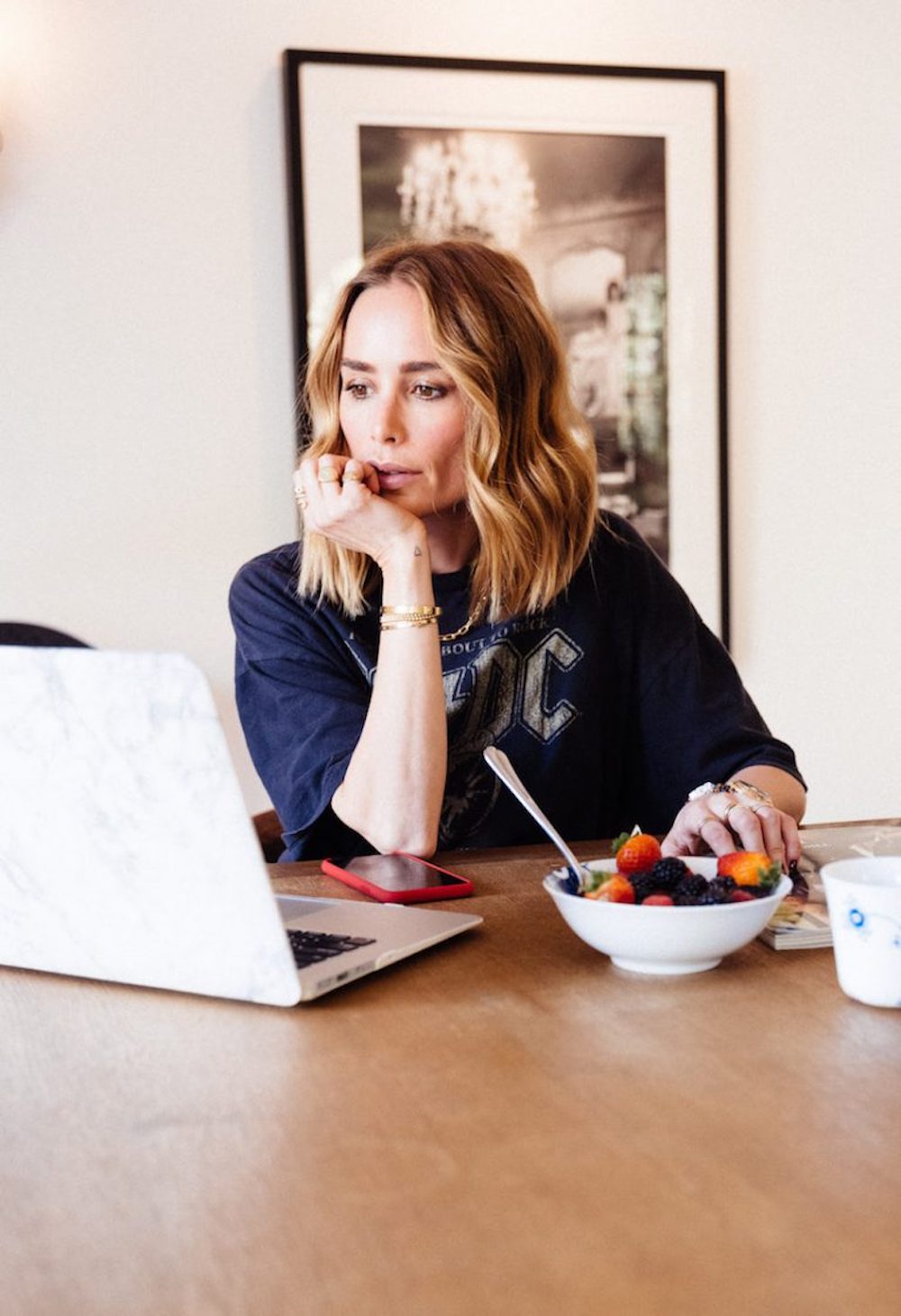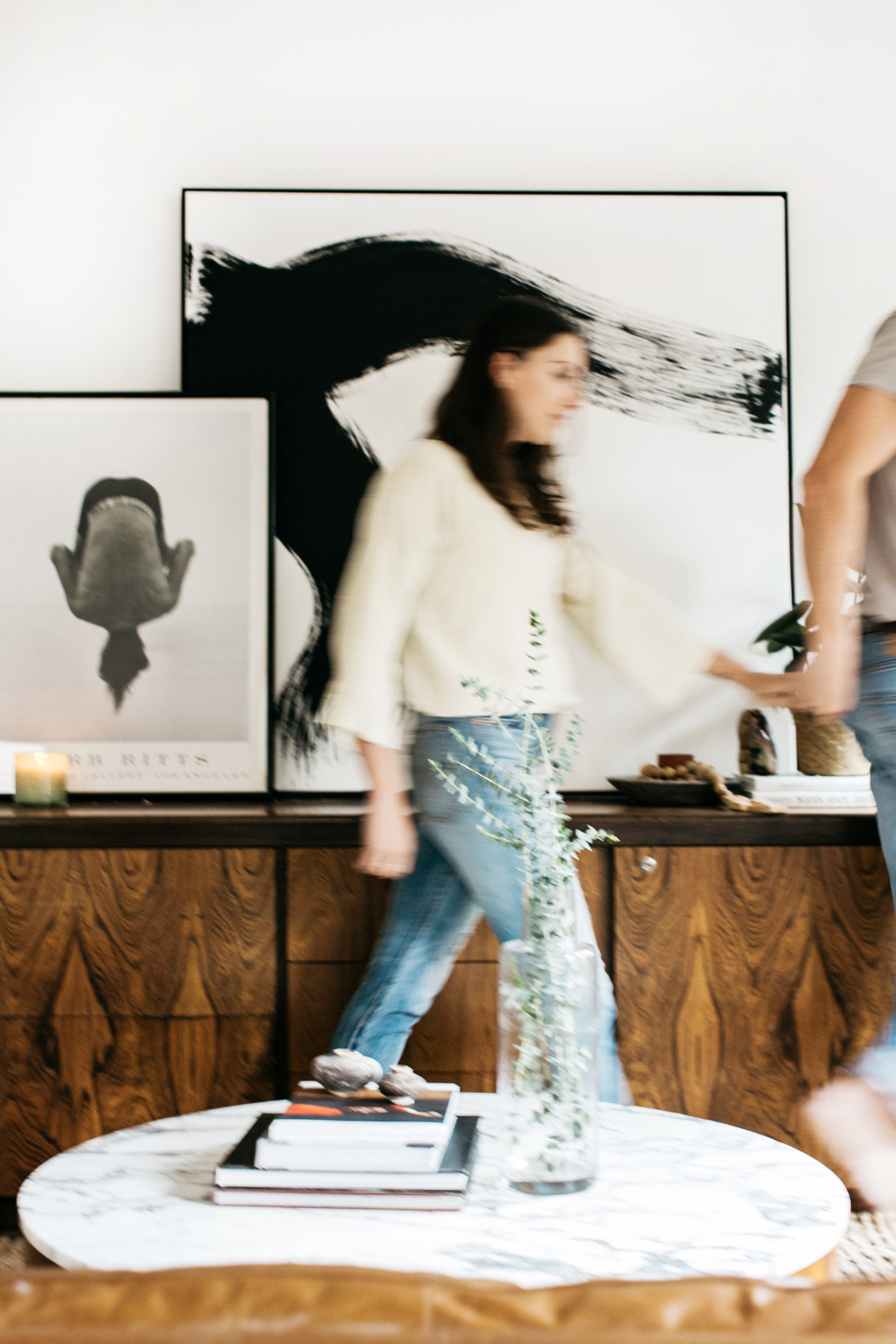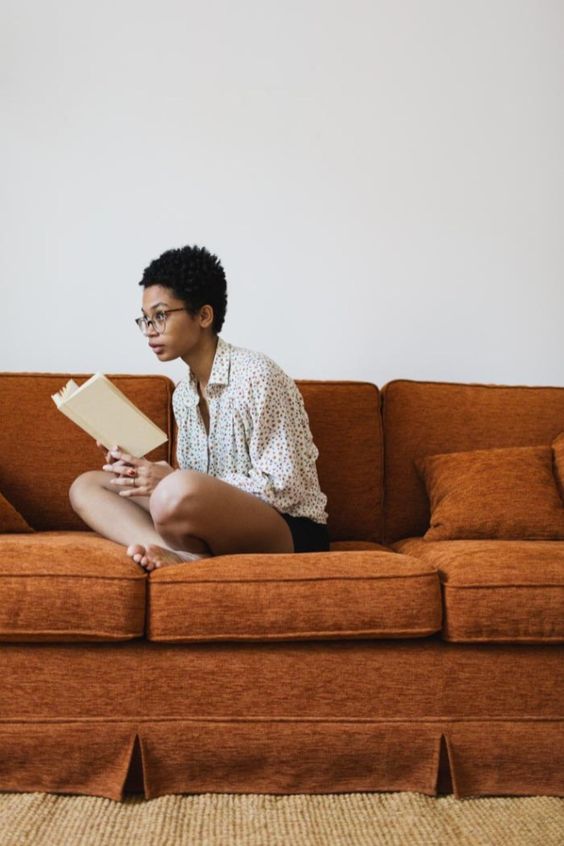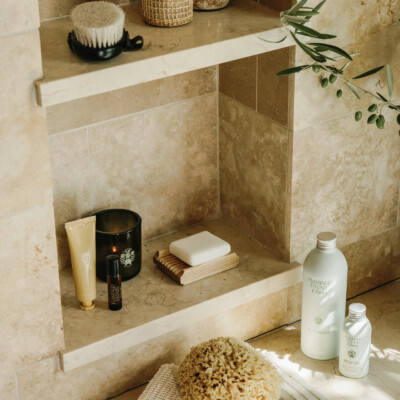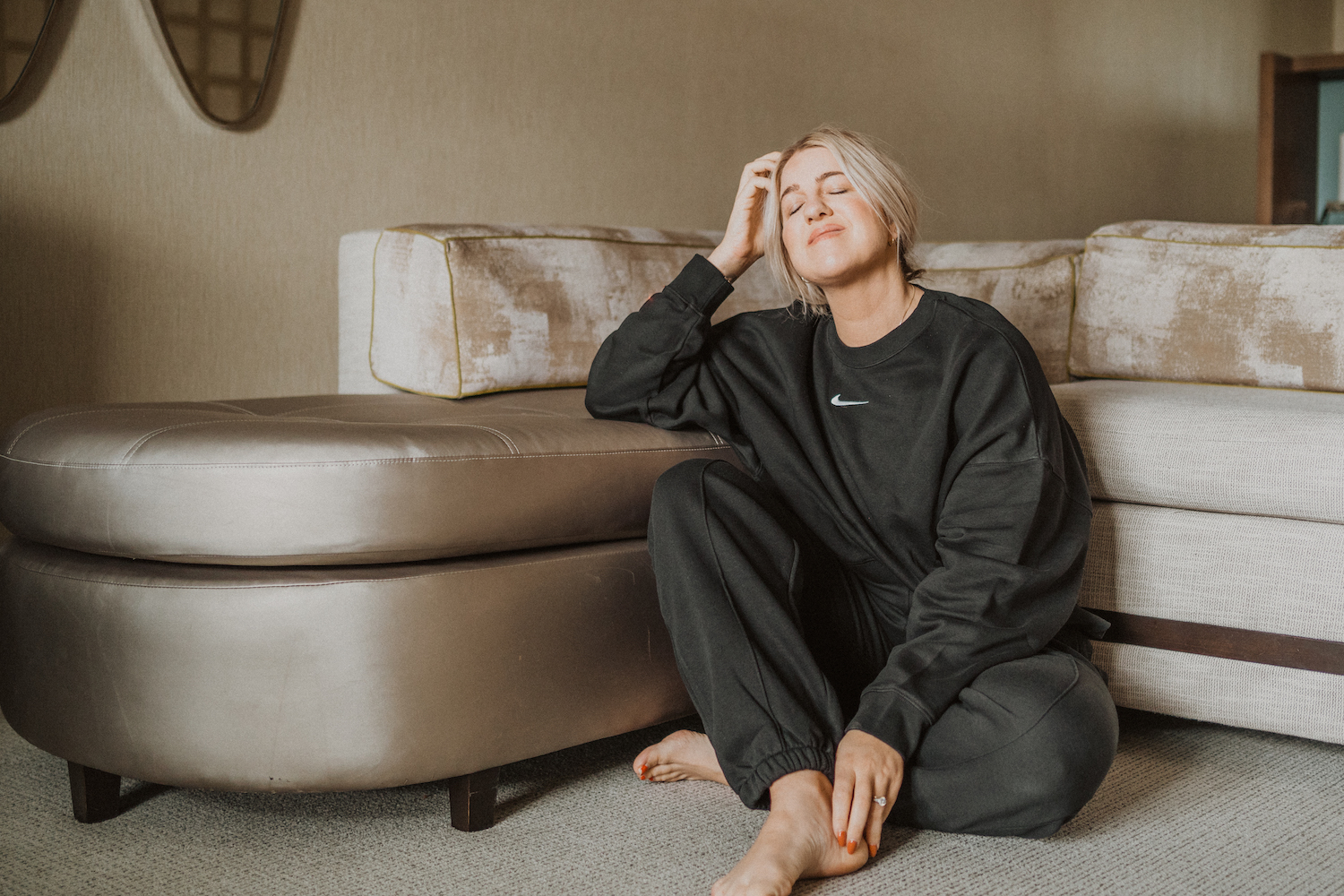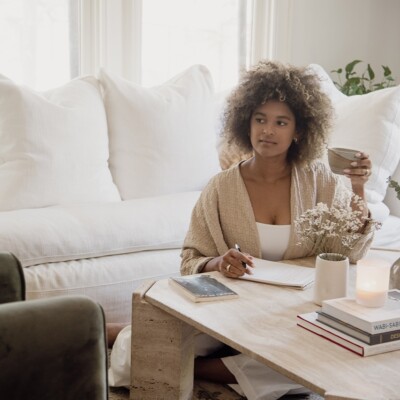In the realm of “things we don’t talk about often” with our pals including salaries, sex, and religion — mental health and therapy is the one I’m finally starting to hear more people discuss comfortably, and I am here for it. When I lived in LA over 10 years ago, having a therapist was as common as having a go-to spot for sushi. “Who do you go to?” was a common phrase I’d hear after explaining any kind of personal issue I was having. It felt like an accessory more than a necessity so I didn’t really buy into it (though yes, I did have one for a few months.)
Fast forward 10 years and a pandemic later, and I’m hearing a lot of people speak highly of their therapist that’s helping them cope, and seeing a lot of images shared on social media with the phrase, “It’s ok to not be ok.” I like that it’s normalizing feelings that aren’t of the happy-go-lucky, “always finding the silver lining” variety. Though if that’s you, that’s ok too. I’m attracted to vulnerability from humans in general; one quick inventory of my friend group reminds me that almost all of them feel comfortable sharing their truth. And in relationships, if the guy I’m with can’t be vulnerable, it doesn’t last.
The past three years of therapy have made me more vulnerable with my feelings, and I think that’s drawn a lot of people into my world. It’s also pushed some out who haven’t been able to accept my new way of thinking or feeling.
Anytime I write or talk about therapy I get a deluge of questions, so I thought I’d answer some of them here in hopes they help you in your search for a therapist, your curiosity, or if you’re like me, your pause in your current practice (more on that below.)
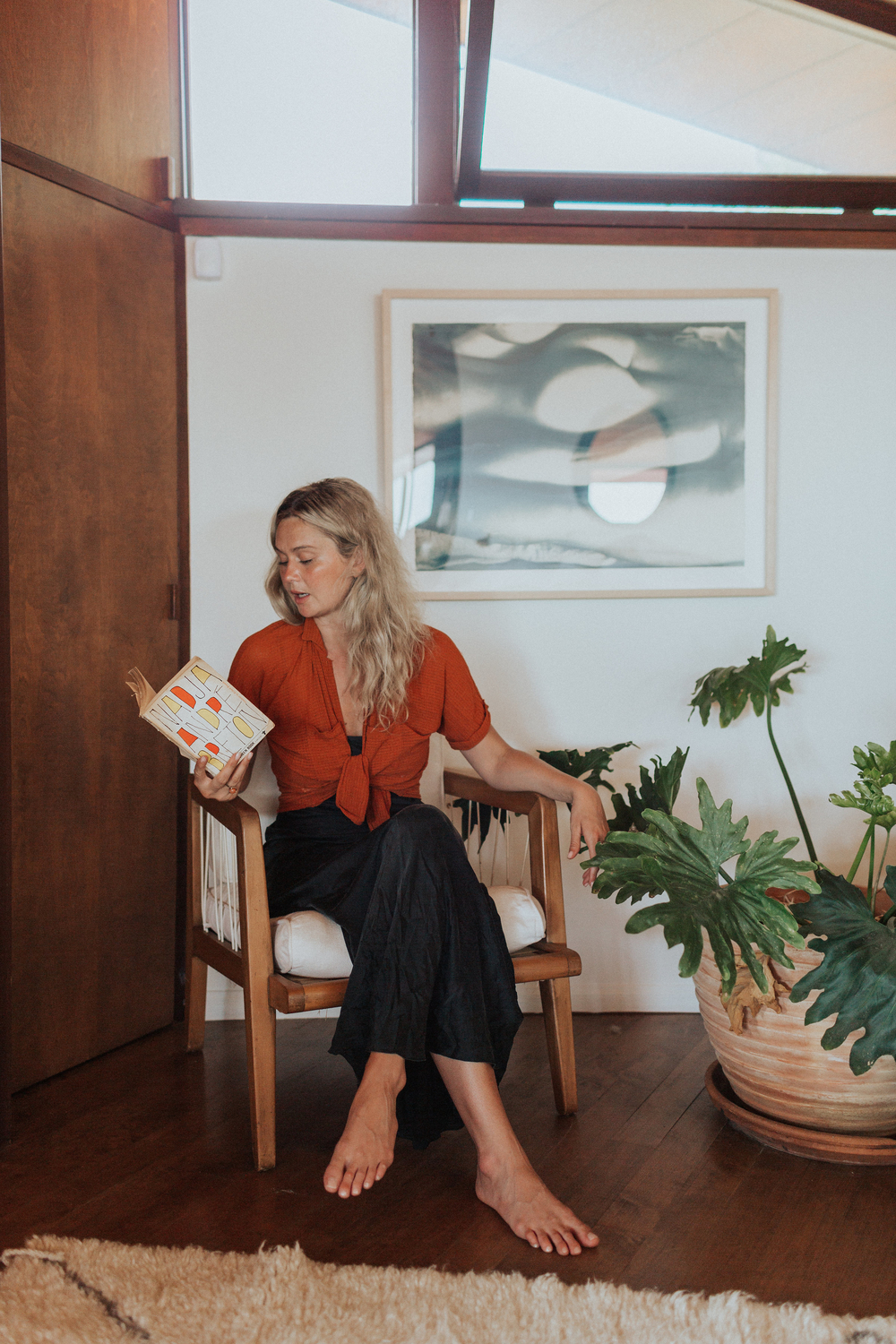
How did you find your therapist?
My pal pointed me to the website Psychology Today, and encouraged me to find one based on issues I’d like to address. I read through bios, sent emails & chatted with a few until one felt right, and that accepted my insurance. This is a process. You might not click with five therapists before you find the right one, or if you’re like me, I only talked to a few before finding the right person. You’re in control and steering the ship — if you don’t feel a connection, don’t force it. It’s truly a lot like dating, you’ve got to navigate what feels right.
What was the first appointment like?
Much like a mix of a job interview and first date with a lot of crying. You’re meeting to get a feel for one another. Can you feel comfortable sharing what you need to, and can they help you? You may get halfway through the convo and they realize that someone else might be a better fit based on their background. Likewise, you may love how they make you feel, or you get a feeling inside that they’re not the one. Be open with what you’re looking for and need help navigating, and they’ll do the same.
How often do you see your therapist?
We were on a once a week cadence for 2+ years because I needed it, and it was affordable with my $15 co-pay. When I moved jobs, my insurance didn’t fully cover the cost so we moved to bi-weekly and it worked. I would call for a one-off if I needed to, or I would cancel if I didn’t have anything to talk about.
How have you been doing therapy during quarantine?
Since my therapist moved out of the state in 2019, we were doing teletherapy for months prior, so that wasn’t new. I do prefer meeting in person. There’s a level of intimacy, trust, camaraderie that is created in the therapy room face-to-face that’s hard to establish over video. I would suggest starting therapy in person if you’re able. If you’re not, it’s still a wonderful option.
How do you know if you’re healed or still need therapy?
This is a tricky one because it’s so subjective and personal. I don’t know if we are ever completely healed, but I do think therapy gives us the tools we need to navigate our feelings or triggers. In May, I asked my therapist the same question. Because of quarantine, I didn’t feel like much was happening in my world to really discuss. I felt like I was coming to our bi-weekly calls almost reaching for things to talk about, so I said, “when is it appropriate to take a break?” She was awesome and said that sometimes we ebb-and-flow when we need to talk to someone. Some people go 2-3 times per week, others once a month, depending on what they need. So she and I are on an as-needed basis right now. I haven’t needed her yet, but love that she’s a call away if I do. I can also share that the tools we’ve worked on the past three years have most certainly been exercised in the past month, so it has been money well spent.
When did you feel comfortable talking about therapy?
When I realized it was a strength not a weakness.
I workout my body and share proudly; my mind deserves the same love and attention.
To say you need help is a beautiful thing, we can’t possibly do life on our own.
image source: goop
What surprised you about therapy?
That some days I walk out with a completely new and shifted perspective that can be really life-changing, and other times it’s just refreshing to get something off my chest and walk out feeling lighter, even though it wasn’t “ground-breaking.” No two sessions are the same, and some days don’t require a deep-dive back into my childhood. There have been several times I’ve walked in thinking I didn’t have much to talk about — for instance — one time I thought I was just venting about my indecisiveness (over choosing a restaurant), and it was the beginning of taking a look at how much I’ve placed an emphasis on “doing the perfect thing,” which became a whole session about dismantling perfection.
What’s your biggest piece of advice when it comes to therapy?
I have 3 tips that have really helped me:
- First, don’t schedule any big meetings, presentations, dates, etc. on therapy days. Therapy can sometimes be emotionally draining — not always of course — but more often than not, I’d need some time to myself and two ibuprofen after.
- Second, don’t hold back in that room. There were a few times I had so much shame and judgement that it felt hard to voice it, but I had to remember my therapist is there to help me work through those things, and vowed to never hold back, which is really just stunting our growth.
- Finally, write down what you’ve learned or heard in that room that resonated. There’s a lot I wish I would’ve wrote down in the beginning to look back on, and it’s really nice to see the growth, patterns, pivots, etc.
Have you done couples therapy?
No, but I would 100%. I haven’t had a relationship long enough to take that step, but I love the idea of it, and hope my next partner does too.
Do you recommend using your friend’s therapist?
If you meet with that therapist and feel like they could help you, then sure. In my last job, there were at least 8 people that saw the same therapist and I specifically didn’t want to see that person based on the bias they may have about any workplace issues I wanted to discuss. Now, if you’re seeing that therapist specifically to talk about the friend that also uses that therapist, that might not fly. Best to address that in your first meeting to see if it’s a conflict of interest.
What do you do when someone uses therapy against you?
If you’re wondering what this means, it’s phrases that look or sound like, “Guess your therapist didn’t teach you (insert whatever jab),” or “Did your therapist give you that line?” and I’d probably respond with, “I’m so thankful my therapist is helping me find my voice,” or a simple, “What are you trying to accomplish with that line?” That issue is much deeper I’m sure, but of course, there will be people in your life that don’t like when they can’t control a situation like they used to.
Should you always use the same therapist?
I’d turn that question back on you! Do you think you need a change? Why is that? Have you talked to your therapist about how you’re feeling? To tell people that help us that we’re not really getting what we need is hard, right? So is spending a lot of money and not walking away fulfilled. Be open and honest. I cannot stress enough how much this is like a relationship and dating. I have very much used therapy to practice communicating what I need and that translates into relationships.
Has therapy saved you or transformed you?
Therapy has elevated my life and given me tools to navigate a plethora of issues. I’ve certainly repeated mistakes during therapy, but my response time and how I handle myself or others is what has changed and shifted the most.
What’s been your favorite therapy advice?
Two things really stick for me.
First, A lot of times I’ll say really bold statements like, “I’m never doing that again,” or “It’s the worst,” or “I always think x, y, z,” and my therapist reminds me that that’s not true. I will probably do the same thing again because I’m human. It’s what I do about it; how I talk to or treat myself, how I approach the next steps, etc. that matters. She brings me back down to earth and reminds me to sit with the feelings, name them, then move on from them in a healthy way (which is usually a lot of loving and kind talk).
Second, I can be extreme or addictive with so many things like working out, finding a new hobby, work, etc. that I can burn out quickly. She gave me the image of a pendulum swinging far in one direction with all of that energy and momentum that I put into things. When that pendulum drops, it swings far in the other direction so all of that energy and momentum is lost, and I can get hard on myself or stagnant. She recommended sitting at the bottom of that pendulum and never letting it fall too far in any one direction. Easier to maintain, and energy for whatever stays fairly consistent. I replay that image in my head weekly. It’s been so helpful.
Is therapy for me?
I truly believe it’s for everyone. No matter how big or small you feel your “issue” is, it’s wildly helpful to take the burden off your friends & family for everything, and talk to someone neutral who can show you another way of managing your feelings. Your issue may never go away, but you can certainly gain the tools to navigate your thoughts and feelings with help.
I think it’s pretty special when someone can be vulnerable and say, “I want to be the best version of myself, and I realize I can’t do it alone.”
Hopefully this is useful to you, readers. Don’t forget to take care of your mind and your heart.


